Are you considering joining a club but unsure how to express your interest? Crafting the perfect membership application letter can be easier than you think! With a friendly tone and a clear structure, you can convey your enthusiasm while highlighting your relevant skills and experiences. If you'd like to explore some helpful tips and templates, keep reading to unlock the secrets to a winning club membership letter!

Personal Information
A club membership application requires detailed personal information to assess eligibility and fit within the community. Typically, applicants are asked to provide their full name, which establishes identity and records. Age, often specifically in ranges (e.g., 18-25, 26-35), is crucial for age-restricted clubs, ensuring members align with the club's demographic. Residential address, including street, city, and postal code, allows for geographic location assessment and communication, while a contact phone number ensures direct outreach for membership inquiries. Email address is also necessary for sending updates and notices. Additionally, applicants may need to disclose occupation and employer details to gauge professional backgrounds and potential contributions to the club's activities. Finally, a section for past memberships or affiliations with similar organizations provides insight into the applicant's experience and commitment to group engagement.
Membership Type Selection
Selecting the appropriate membership type is crucial for clubs, as it determines the level of access and privileges afforded to members. Various options typically include Regular, Student, Senior, and Family memberships, each tailored to different demographics and needs. Regular membership often includes full access to facilities and activities, while Student memberships provide discounted rates for those enrolled in educational institutions. Senior membership typically caters to older adults, offering reduced fees and specialized programs. Family memberships encourage group participation, allowing multiple family members to enjoy the benefits together, creating a sense of community and involvement. Understanding these distinctions aids individuals in making informed decisions that enhance their club experience.
Statement of Interest
Joining a local organic gardening club can enhance a member's understanding of sustainable practices and promote community involvement. Members often engage in activities such as workshops on permaculture and community gardening projects, fostering a sense of collaboration. Additionally, clubs may organize events like plant exchanges and seasonal harvest festivals that celebrate local biodiversity. Participants can also share insights about native plant species, pest management techniques, and soil health. Overall, membership provides opportunities to connect with fellow gardening enthusiasts while promoting environmental stewardship through hands-on learning experiences.
Endorsements/References
Club membership applications often require endorsements or references from existing members. Endorsements enhance credibility, providing insight into the applicant's character, commitment, and alignment with the club's values. References from respected members or professionals within the community can significantly influence the decision-making process. Applicants should seek endorsements from individuals familiar with their involvement in similar organizations or community service activities to demonstrate their dedication and suitability for membership. Prompt and clear communication with endorsers will ensure timely submission of recommendations. A strong endorsement can illustrate the applicant's potential contributions to club activities and foster positive relationships among members.
Payment Details and Authorization
The payment details section of a club membership application outlines the fees associated with joining the organization, such as annual membership dues (typically ranging from $50 to $300 depending on the club type) and any one-time initiation fees (often between $25 to $100). Authorization pertains to the agreement by the applicant to comply with club rules and regulations, often including a signature line or checkbox indicating consent. Payment methods may include credit card options, bank transfers, or checks. Detailed information about renewing membership (usually required annually) and the consequences of late fees (up to 20% of the total dues) may also appear here, emphasizing the importance of timely payment for maintaining active membership status.

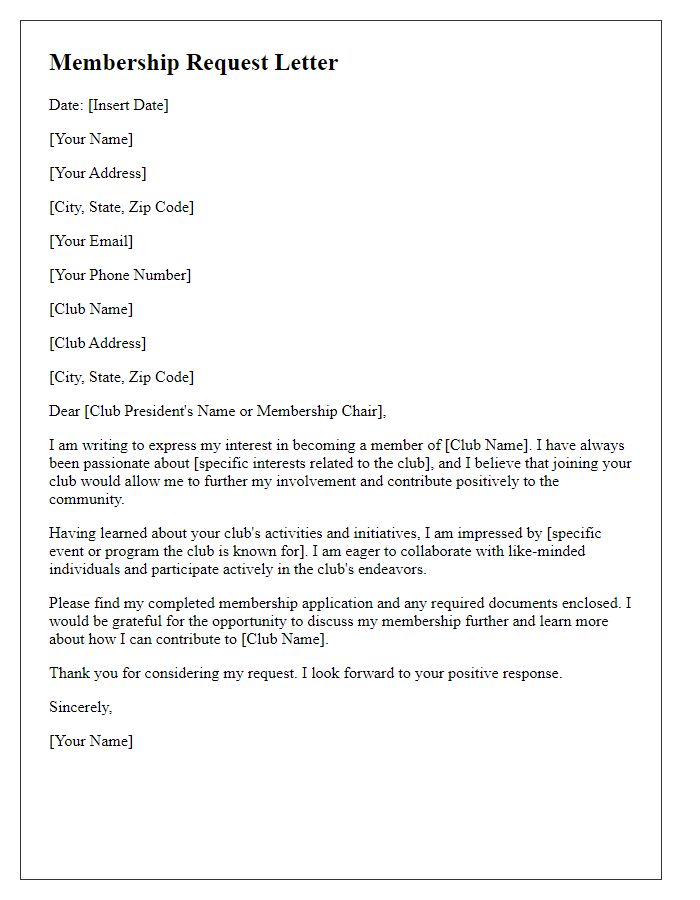
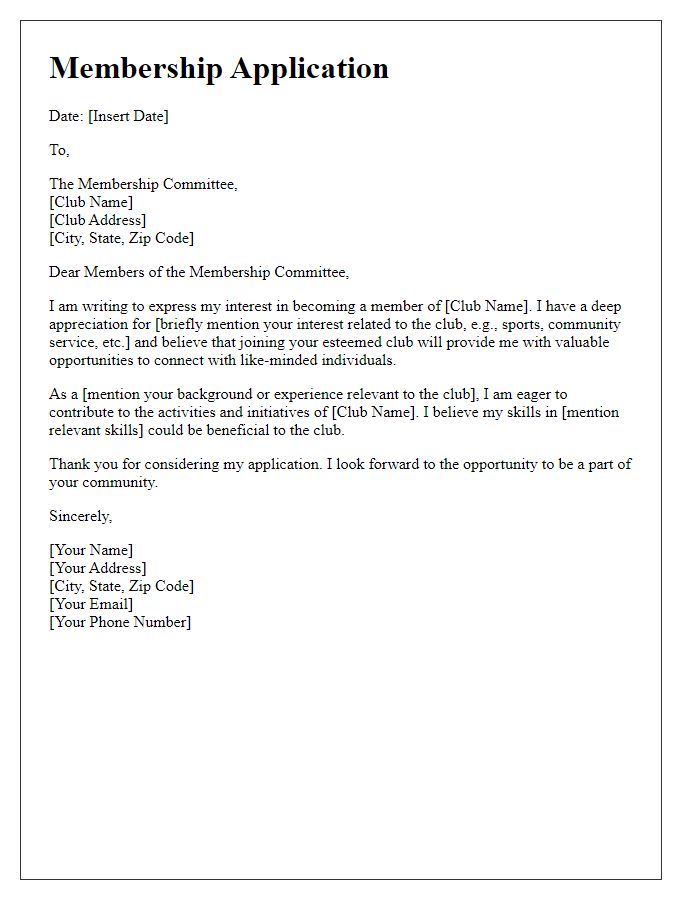
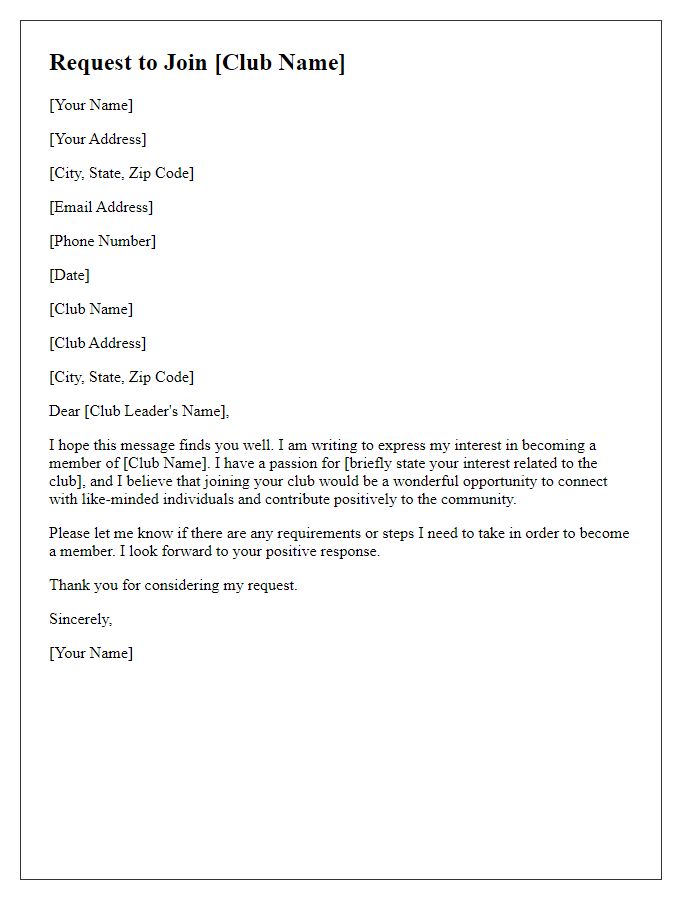
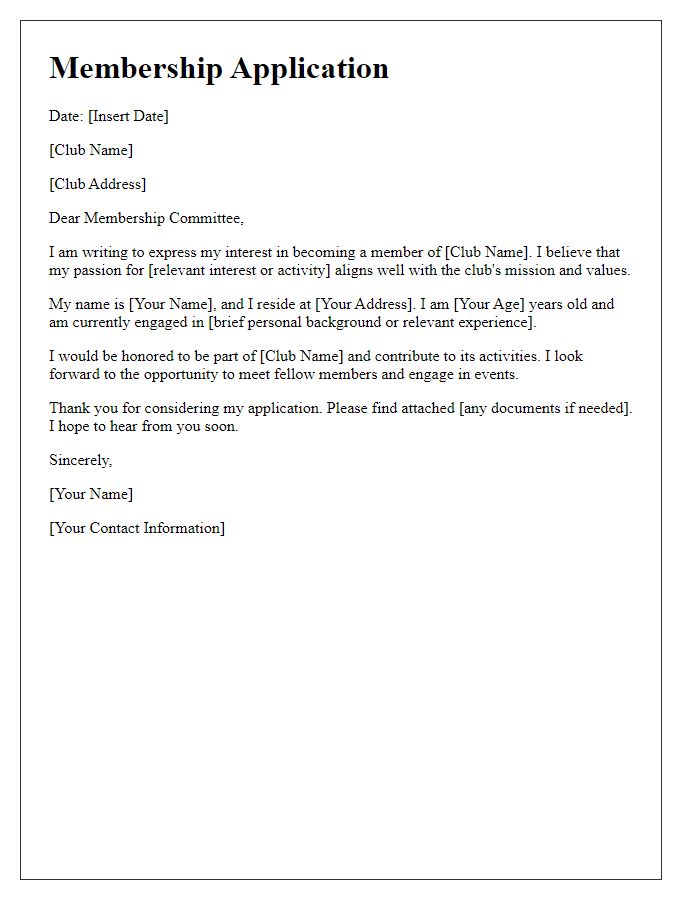
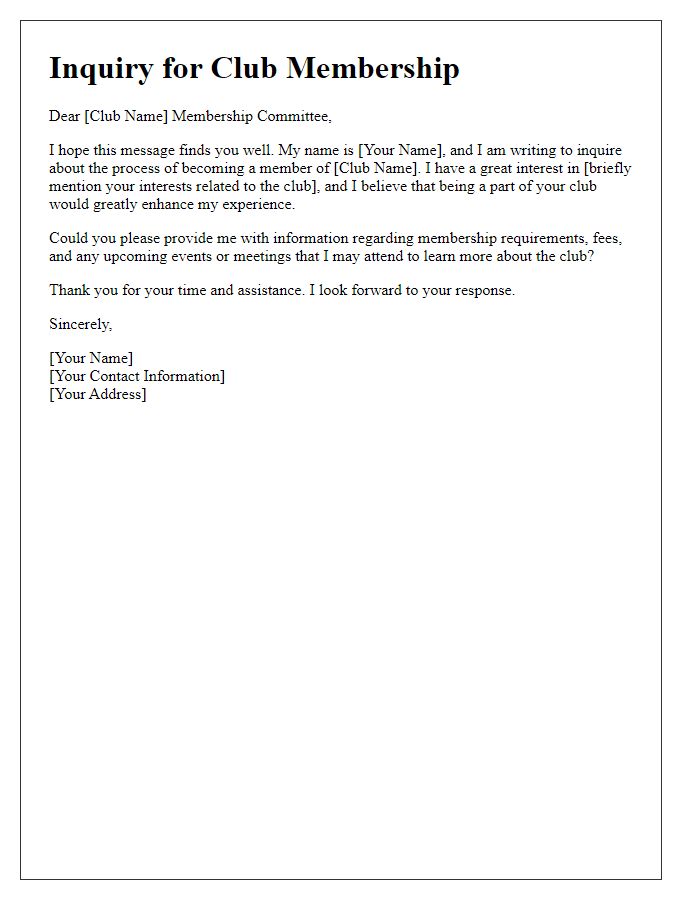
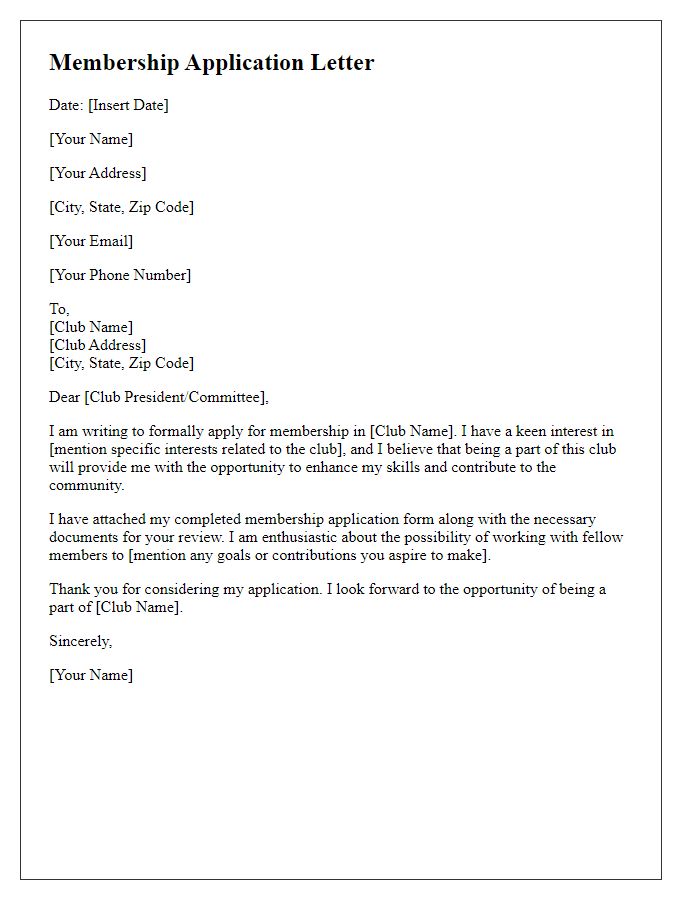
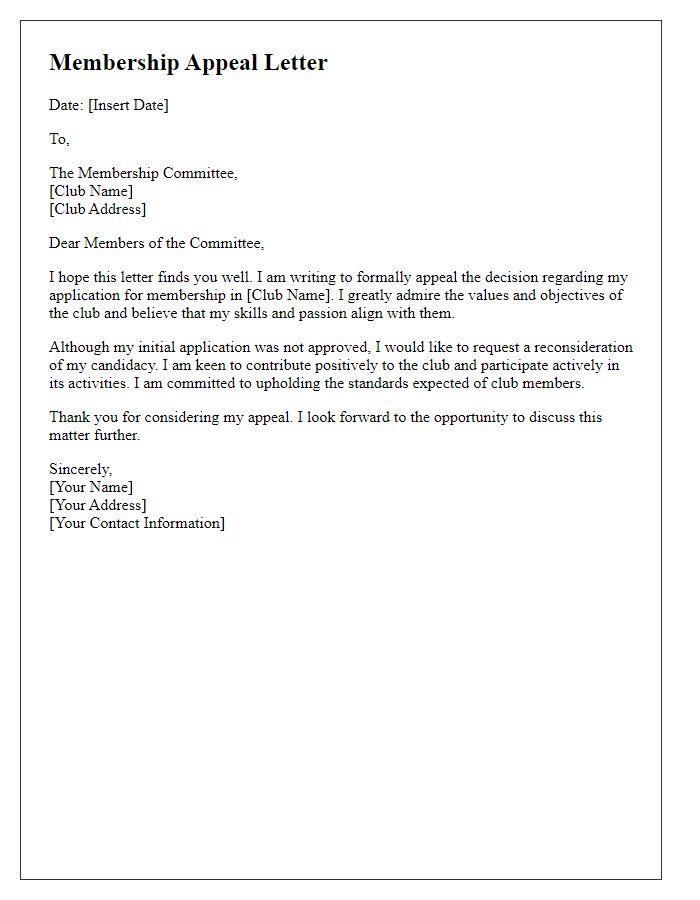
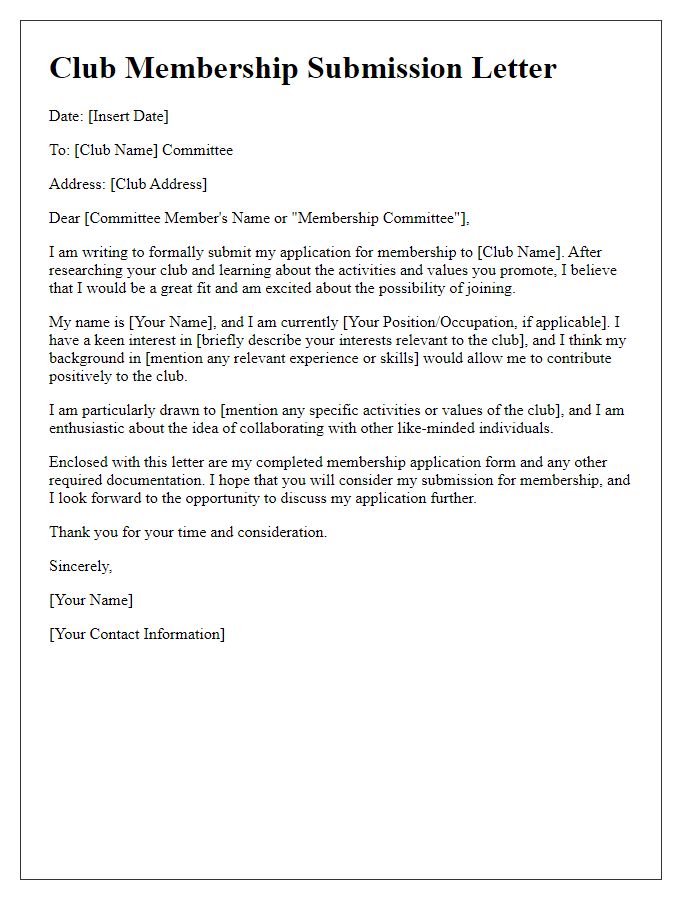
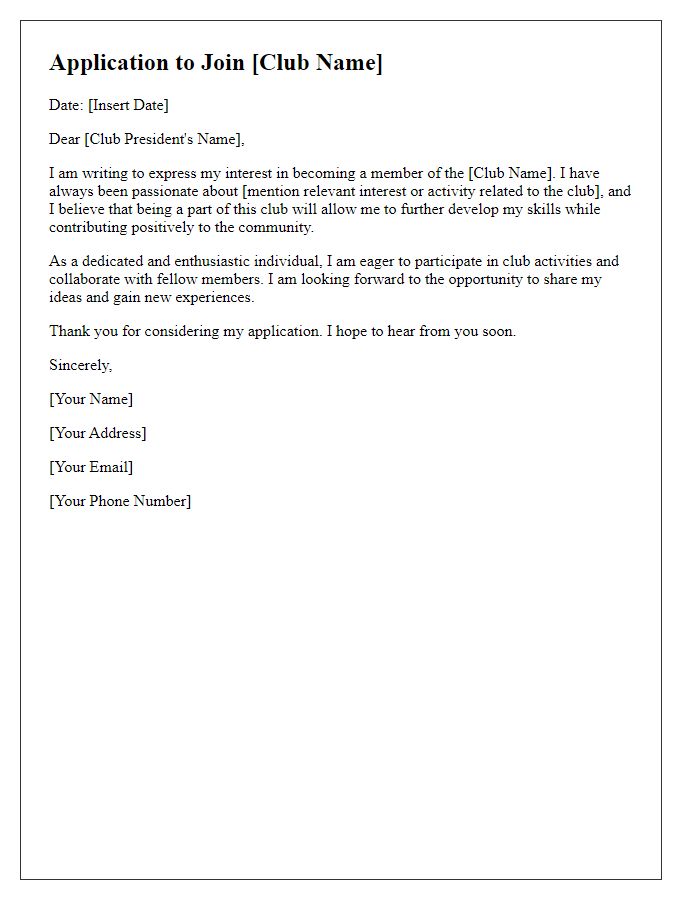
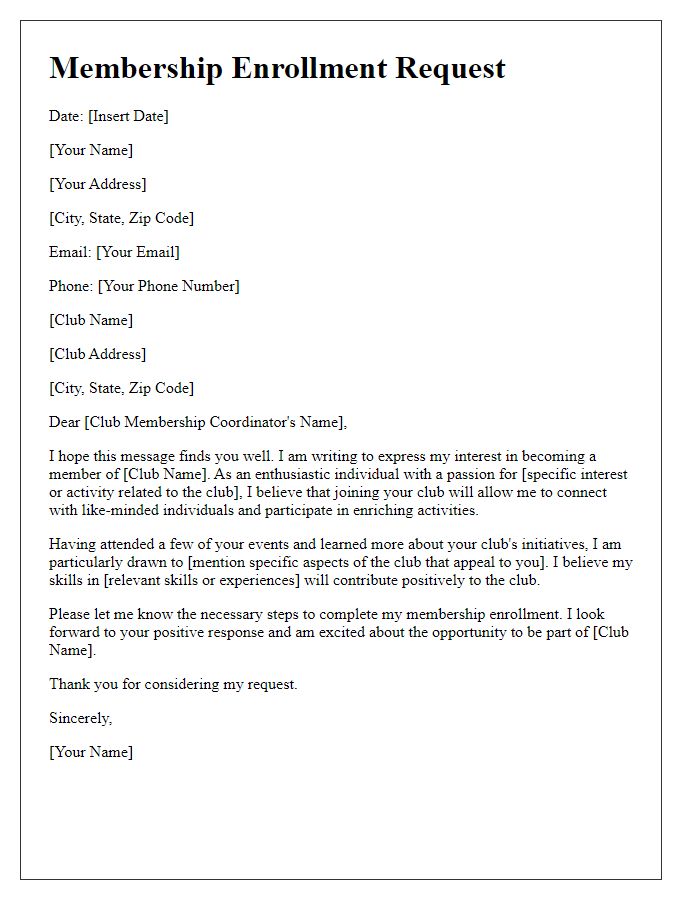


Comments